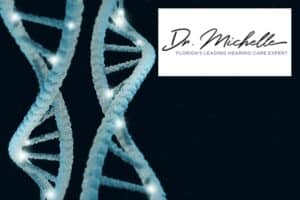Our ability to hear plays a vital role in our day-to-day lives, impacting our communication, social interactions, and overall well-being. Unfortunately, as we age, our hearing may become more susceptible to problems and conditions that can significantly impact our quality of life. One important factor that can have a profound effect on our hearing health is noise pollution. In this article, we will explore the impact of noise pollution on our hearing health and discuss steps to protect our ears from potential harm.
Understanding Noise Pollution
Noise pollution refers to the excessive and disruptive sound present in our environment. It can come from various sources such as traffic, construction sites, industrial activities, and even recreational events like concerts and sporting events. While some sounds may be harmless, prolonged exposure to loud and harmful noises can cause significant damage to our hearing health.
Differentiating between harmful and non-harmful sounds is crucial. Continuous exposure to sounds above 85 decibels (dB) can lead to permanent hearing loss, while short bursts of sounds at higher levels can cause immediate harm. Being aware of the potential risks associated with noise pollution is the first step towards protecting our hearing.
The Mechanism of Hearing
To understand the impact of noise pollution on our hearing health, it’s essential to have a basic understanding of how our ears process sound. The process begins with the outer ear, where sound waves enter and travel through the ear canal. These sound waves then reach the middle ear, causing the eardrum and tiny bones within it to vibrate.
The inner ear, specifically the cochlea, plays a crucial role in converting these vibrations into electrical signals that can be interpreted by the brain. The delicate hair cells within the cochlea transform the sound waves into neural impulses, allowing us to perceive sound. Protecting these delicate structures within our inner ear is vital for maintaining optimal hearing health.
The Impact of Noise Pollution on Hearing Health
Exposure to excessive noise levels can lead to both temporary and permanent hearing loss. Temporary hearing loss, also known as temporary threshold shift, may occur after attending a loud concert or any event with prolonged exposure to high-volume sounds. Fortunately, temporary hearing loss typically resolves within a few hours or days.
However, noise-induced hearing loss (NIHL) is a permanent condition that can result from prolonged or repeated exposure to loud noises. It can occur in various settings, such as workplaces with occupational hazards, leisure activities like hunting or listening to music at high volumes, and even everyday environmental noise. NIHL affects the delicate sensory hair cells within the cochlea, causing irreversible damage and compromising our ability to hear.
Another common consequence of noise pollution is the development of tinnitus. Tinnitus is the perception of ringing, buzzing, or other phantom sounds in the ears. While not a form of hearing loss itself, it often accompanies hearing loss and can be triggered or worsened by exposure to excessive noise. Tinnitus can negatively affect one’s quality of life, causing distress and interfering with sleep and concentration.
It’s important to note that the effects of noise pollution on hearing health are cumulative. Even if individual instances of exposure may seem insignificant, repeated encounters with excessive noise can lead to more severe and long-lasting consequences.
Other Health Effects of Noise Pollution
In addition to its impact on hearing health, noise pollution can also have detrimental effects on our overall well-being. Excessive noise has been linked to increased stress levels, anxiety, and sleep disturbances. The constant presence of disruptive sounds can hinder our ability to relax and rest, leading to chronic fatigue and a compromised immune system.
Noise pollution can also impede our cognitive function and productivity. The constant exposure to disruptive sounds can impair concentration, memory, and problem-solving abilities. Older adults, who may already be experiencing age-related cognitive decline, are particularly vulnerable to these effects.
Emerging research suggests that there may be potential links between noise pollution and cardiovascular health. Prolonged exposure to high levels of noise has been associated with increased blood pressure, heart rate, and even the risk of heart disease. While further studies are needed to establish a definitive connection, the potential health implications of noise pollution are significant.
Protecting Your Hearing from Noise Pollution
Awareness and education about the risks of noise pollution are fundamental to protecting our hearing. Understanding the potential harm it can cause empowers us to make informed decisions about our environments and the activities we engage in.
In noisy environments, such as construction sites or concerts, wearing hearing protection devices can significantly reduce the intensity of sound reaching our ears and help prevent damage. Earmuffs, earplugs, or noise-cancelling headphones are simple yet effective tools that can safeguard our hearing in such situations.
Implementing noise control measures at home and in the community is another proactive step towards protecting our hearing. Minimizing the use of loud equipment, choosing quieter appliances, and advocating for noise reduction initiatives can help create a more peaceful auditory environment.
Seeking Professional Help
Regular hearing screenings and check-ups are essential for maintaining optimal hearing health, particularly in the presence of noise pollution. Consulting an audiologist for personalized advice on hearing protection measures and maintaining good hearing habits is highly recommended.
If you already experience hearing loss or tinnitus as a result of noise pollution or other factors, professional help is crucial. Audiologists can evaluate the extent of your hearing loss, provide treatment options such as hearing aids or assistive listening devices, and offer strategies to manage tinnitus symptoms.
The impact of noise pollution on hearing health is a matter of significant concern. Protecting our hearing should be a priority as we age and face the potential risks associated with excessive noise exposure. By raising awareness, utilizing hearing protection devices, implementing noise control measures, and seeking professional help when needed, we can preserve our hearing for years to come. Remember, our ability to hear is precious, and it’s never too late to start taking care of it.



